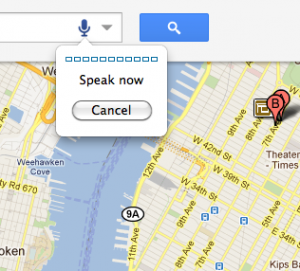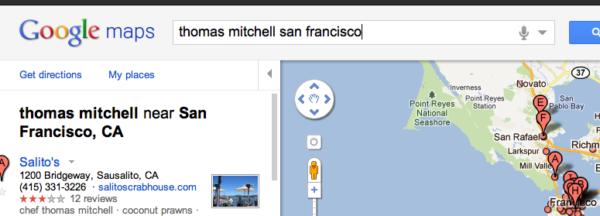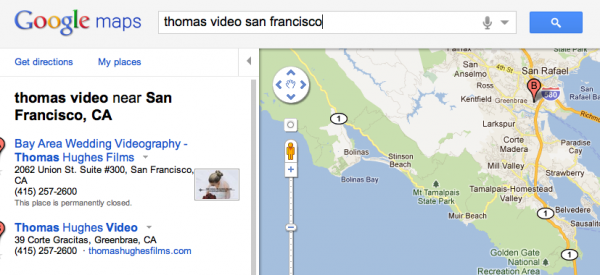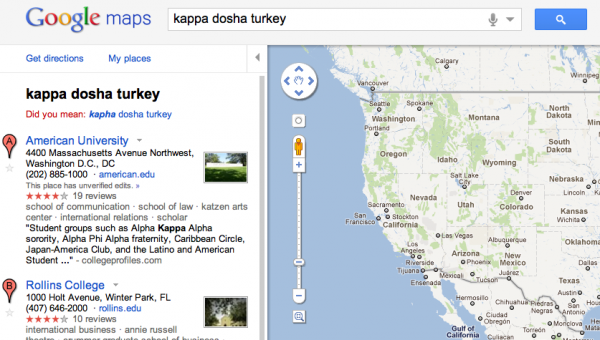Google Maps — Now With Voice Search
Voice search all began for Google several years ago with the now-shuttered, free directory assistance service GOOG-411. After the underlying infrastructure had matured Google introduced it on Android devices and in its iPhone apps. More recently, in July, the company put the same voice search capability on Google.com on the Chrome browser for the PC. […]

Now it’s extending that functionality to Google Maps.
While voice search on mobile devices is widely used it’s not clear whether many people are yet searching with voice on their PCs. (Insert Star Trek joke here.) In October 2010 Chitika found that voice search was responsible for 7 percent of Google mobile queries on the iPhone and 25 percent on Android devices.
This afternoon I got around to testing voice search on Google.com and in Google Maps. I performed a bunch of queries (category searches, business name lookups, super specific long tail keywords, etc.). I did some with a headset and and some without on both sites.
Overall, voice search performed well and better than I expected. There was little difference in performance in Maps vs. Google.com. However you can do a much broader array of lookups on Google vs. Maps because of the greater breadth of the underlying database.
There were a number of cases where it had trouble, however. For example my dentist in San Francisco is named Thomas Madill and it couldn’t get the name right despite multiple attempts on my part.
Google voice search also initially had some trouble with the relatively straightforward “Sheraton Towers New York,” one of the SMX East conference hotels. But note in the image below that the top paid search ad is correct even though the queries suggested are not. That was impressive.
Again most of the queries were right on the first try and the system worked well, whether I was speaking to my Mac laptop or using a plugged in headset. It also got some difficult-to-spell non-US locations correct on the first try: “Turks and Caicos,” “Lichtenstein,” “Ankara,” “Smolensk” and others. It didn’t do as well with “Cappadocia.”
In some instances voice search is going to be much more efficient than typing. Place names, business names and many long phrases, as well as many category searches, will work well on voice search. And it will be useful for people who have difficulty typing or spelling (e.g., my five year old daughter). In other instances plain old typing is going to be more effective, especially when aided by Google Instant.
[youtube]https://www.youtube.com/watch?v=MQnZe_Iggx0&feature=player_embedded[/youtube]
Opinions expressed in this article are those of the guest author and not necessarily Search Engine Land. Staff authors are listed here.
Related stories



